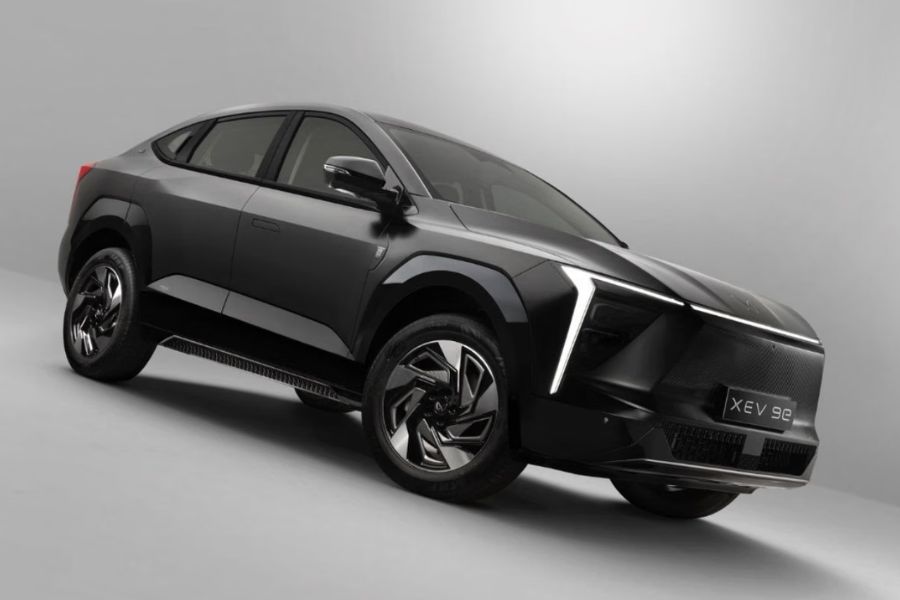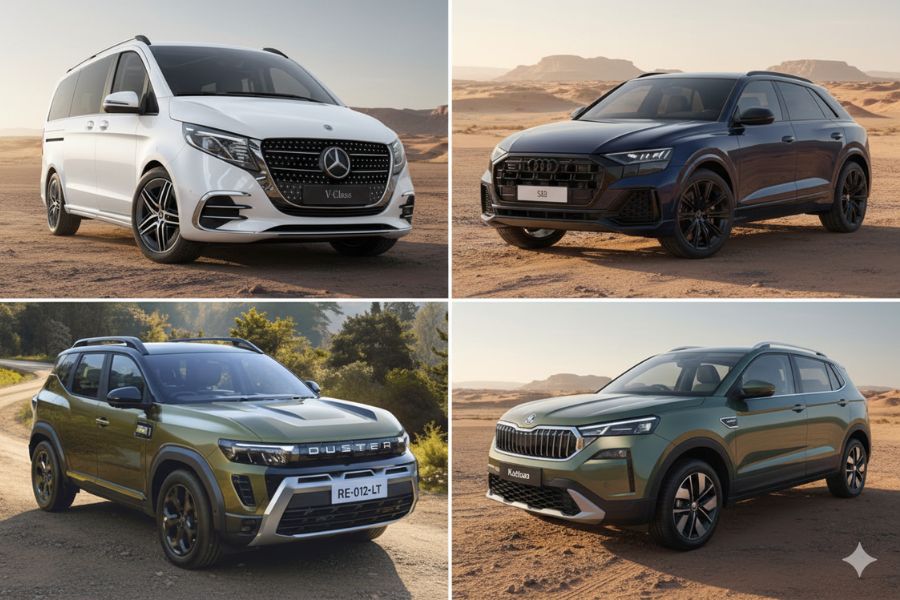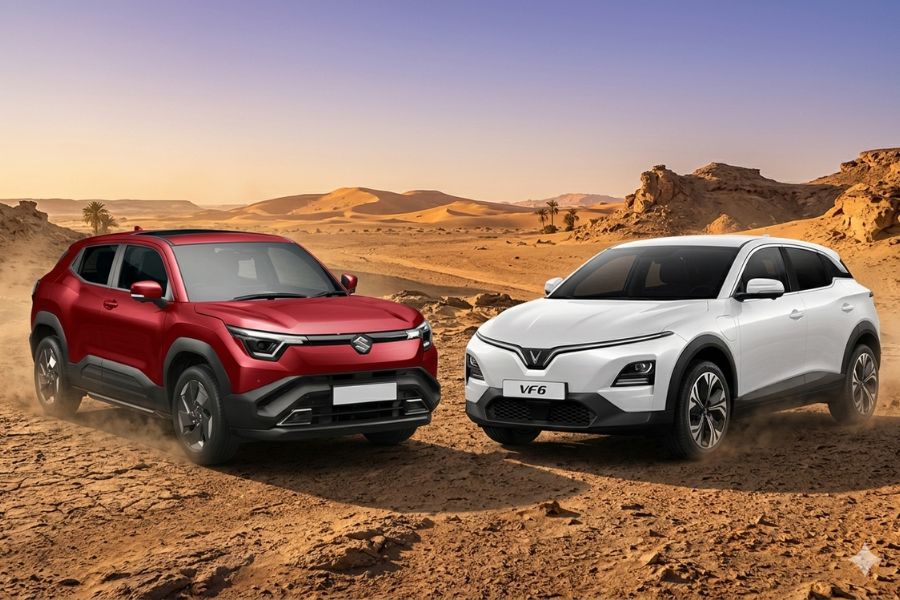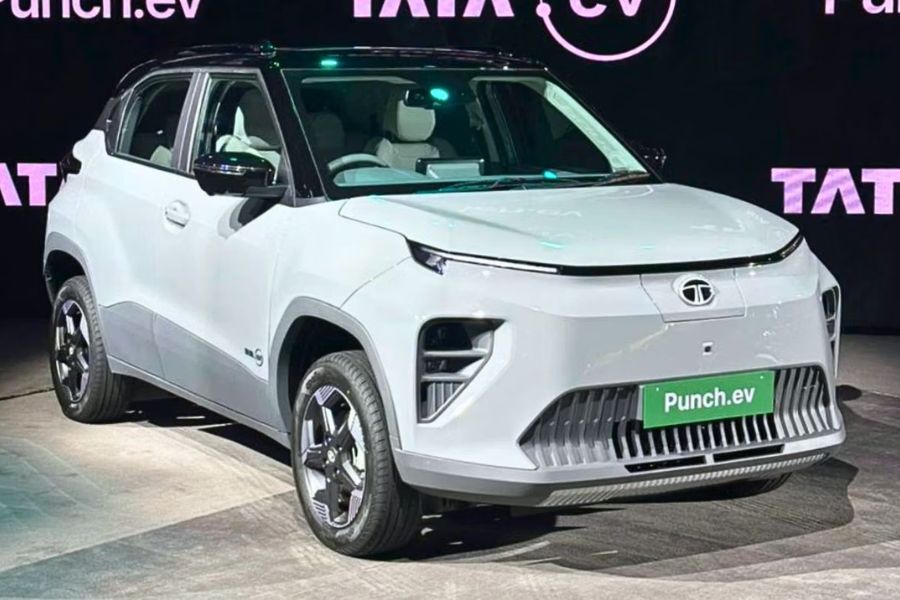In October 2023, the combined wholesale numbers of 14 carmakers in India reached an impressive total of 391,147 units, just a few thousand units short of the 400,000-unit milestone. This surge in sales can be attributed to several factors, including the ongoing festive season, increased production capacity, the introduction of new models, and an improved economic sentiment, which have collectively driven passenger vehicle volumes to an all-time monthly high.
Notably, this figure represents a robust 16 percent year-on-year growth compared to October 2022 (336,428 units), even on a high year-ago base. Moreover, it reflects a 12 percent increase when compared to September 2023 (347,432 units). October marks the 10th consecutive month where passenger vehicle sales have exceeded 325,000 units, with the fourth consecutive month of surpassing 350,000 wholesale units.
In terms of market leaders, Maruti Suzuki, Hyundai, and Tata Motors maintain their top three positions in passenger vehicle sales. This October marked the fourth consecutive month with over 350,000 units sold.
SUVs and MPVs continue to be the primary drivers of growth in the Indian automotive market. With approximately 50% of all cars sold in India falling into the SUV or MPV category, this segment is experiencing significantly higher growth compared to hatchbacks or sedans. Utility vehicles (UVs) are leading the way for most Original Equipment Manufacturers (OEMs).
| OCTOBER 2023 PASSENGER VEHICLE SALES | |||||
|---|---|---|---|---|---|
| Carmaker | Oct 23 | Oct 22 | YoY Growth | Sep 22 | |
| Maruti Suzuki | 1,68,047 | 1,40,337 | 20% | 1,50,812 | 11.42% |
| Hyundai | 55,128 | 48,001 | 15% | 54,241 | 1.63% |
| Tata Motors | 48,637 | 45,423 | 7% | 45,317 | 7.32% |
| Mahindra | 43,708 | 32,298 | 35% | 41,267 | 5.91% |
| Kia | 24,351 | 23,323 | 4% | 20,022 | 21.62% |
| Toyota | 20,542 | 13,068 | 57% | 22,157 | -7.28% |
| Honda | 9,400 | 9,543 | -1% | 9,861 | -4.67% |
| MG Motor | 5,108 | 4,367 | 17% | 3,755 | 36% |
| Skoda | 4,566 | 3,389 | 35% | 4,032 | 13.24% |
| Volkswagen | 4,089 | 3,509 | 17% | 3,568 | 14.60% |
| Renault | 3,861 | 7,778 | -50% | 3,369 | 14.60% |
| Nissan | 2,573 | 3,061 | -16% | 2,453 | 4.89% |
| Citroen | 630 | 1,195 | -47% | 748 | -15.77% |
| Jeep | 507 | 1,136 | -55% | 481 | 5.40% |
| Total | 3,91,147 | 3,36,428 | 16% | 3,47,432 | 12.58% |
With UVs accounting for 57% of total passenger vehicle sales in the first half of 2023, it is estimated that over 215,000 units sold in October were UVs. In the fiscal year 2023, UVs represented 51% of the total 3.89 million cars sold, indicating rapid growth in the ongoing fiscal year.
The leading carmakers, including Maruti Suzuki, Hyundai, Tata Motors, Mahindra, Kia, and Toyota, have all recorded strong growth in October, with four of them achieving double-digit growth. Notably, all of these manufacturers have a strong portfolio of SUVs and MPVs.
The strong momentum in the Indian automotive sector is driving it towards exceeding 4 million sales for the entire fiscal year, surpassing the previous record of 3.89 million units in FY2023. This growth is attributed to recent product launches, particularly in the UV segment, such as the Tata Nexon, Seltos, Maruti Invicto MPV, Hyundai Exter, Tata Punch CNG, Toyota Rumion, and the Honda Elevate.
A positive factor for the Indian auto industry is the improving economy, with GDP growth for the first quarter of FY2024 accelerating to 7.8% from 6.1% in the previous quarter, driven by rural demand. This economic upturn is expected to boost vehicle sales, although growth may moderate in the future due to inflationary conditions, a below-normal monsoon, and high interest rates.
While demand for entry-level hatchbacks remains sluggish, there is stronger demand in the mid-level and premium hatchback categories. Additionally, consumer demand for CNG-powered passenger vehicles, which dipped in the first half of 2023 due to supply constraints, has rebounded, with retail sales of CNG-powered cars and SUVs increasing by 9% year-on-year to 265,815 units in the January-September 2023 period.
The Indian auto industry has responded to the surging demand in the ongoing festive season by ramping up factory production, and most carmakers have overcome the chip supply crisis, which has further boosted their confidence. Industry leaders anticipate that passenger vehicle sales will surpass a million units during the festive season, providing a significant boost to the entire automotive ecosystem.
Read More:




